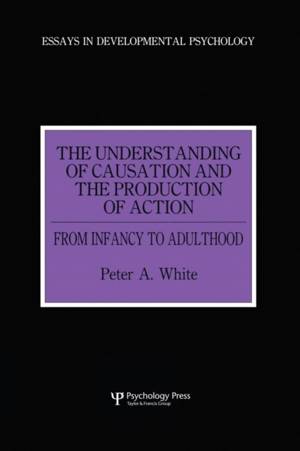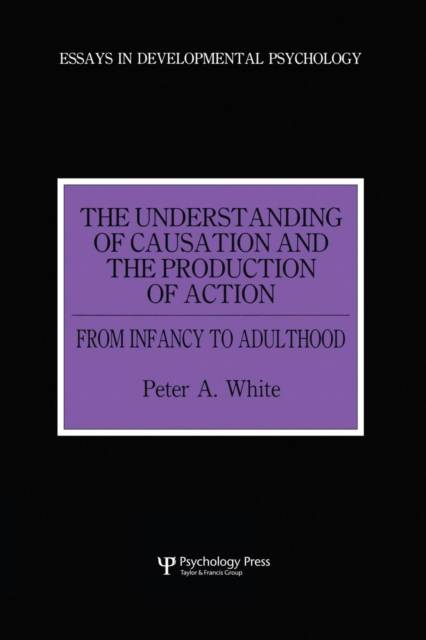
- Retrait gratuit dans votre magasin Club
- 7.000.000 titres dans notre catalogue
- Payer en toute sécurité
- Toujours un magasin près de chez vous
- Retrait gratuit dans votre magasin Club
- 7.000.0000 titres dans notre catalogue
- Payer en toute sécurité
- Toujours un magasin près de chez vous
The Understanding of Causation and the Production of Action
From Infancy to Adulthood
Peter Anthony White
102,45 €
+ 204 points
Format
Description
This text is an attempt to trace out a line of development in the understanding of how things happen, from origins in infancy to mature forms in adulthood. There are two distinct but related ways in which people understand things as happening, denoted by the terms "causation" and "action". This book is concerned with both.; The central claim and organizing principle of the book is that, by the end of the second year of life, children have differentiated two core theories of how things happen. These theories deal with causation and action. The two theories have a common point of origin in the infant's experience of producing actions, but thereafter diverge, both in content and in realm of application. Once established, the core theories of causation and action never change, but form a permanent metaphysical underpinning on which subsequent developments in the understanding of how things happen are erected. The story of development is therefore largely the story of how further concepts become attached to integrated with the core theories. Although the developmental and adult literatures on causal understanding appear at first glance to have little in common, in fact this appearance is illusory, and the idea of two theories helps to bring the two literatures in contact with each other.; The book begins with a survey of the main philosophical ideas about causation and action. Following this, the possible origins of understanding in infancy are reviewed, and separate chapters then deal with the development of understanding of action and causation through childhood. This is then linked to the adult understanding of action and causation, and the literature on adult causal attribution and causal judgement is reviewed from this perspective.
Spécifications
Parties prenantes
- Auteur(s) :
- Editeur:
Contenu
- Nombre de pages :
- 332
- Langue:
- Anglais
- Collection :
Caractéristiques
- EAN:
- 9781138877047
- Date de parution :
- 25-06-15
- Format:
- Livre broché
- Format numérique:
- Trade paperback (VS)
- Dimensions :
- 147 mm x 226 mm
- Poids :
- 498 g

Les avis
Nous publions uniquement les avis qui respectent les conditions requises. Consultez nos conditions pour les avis.






